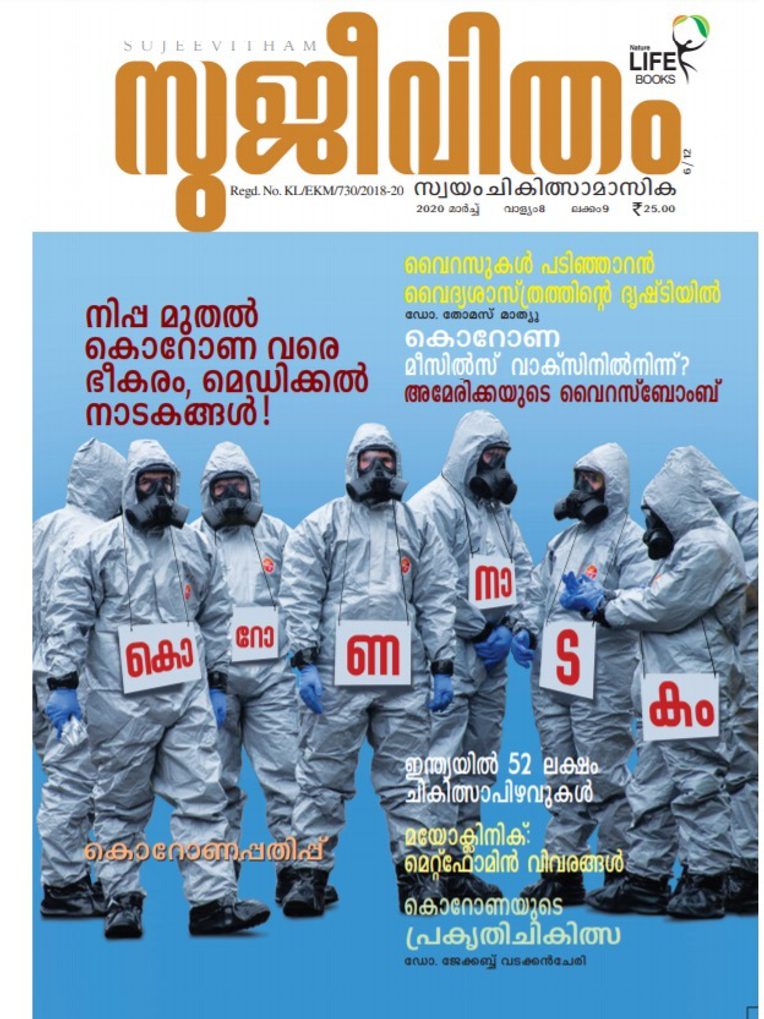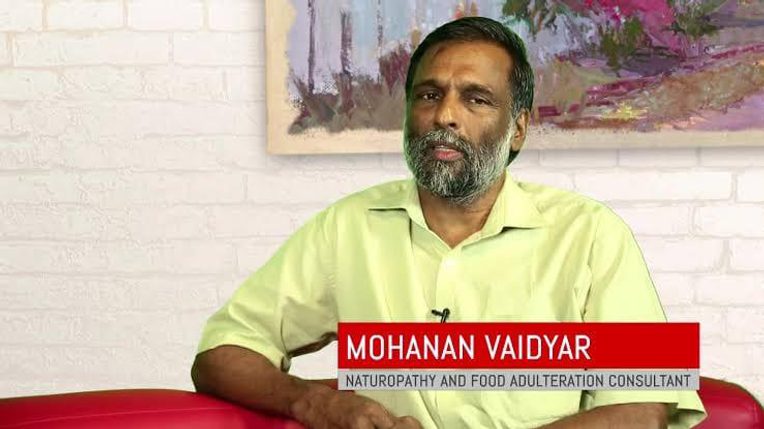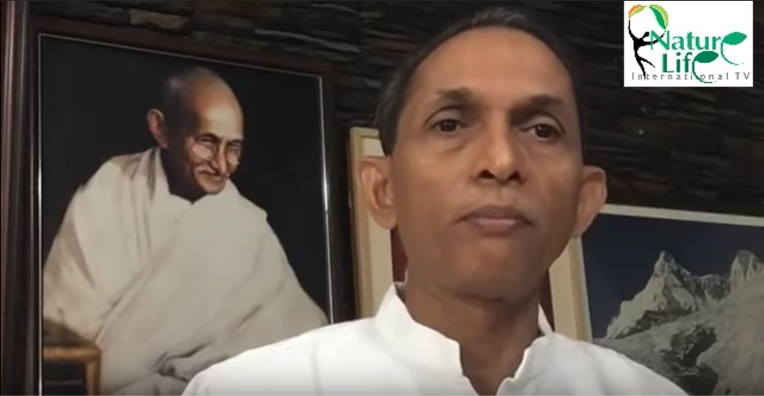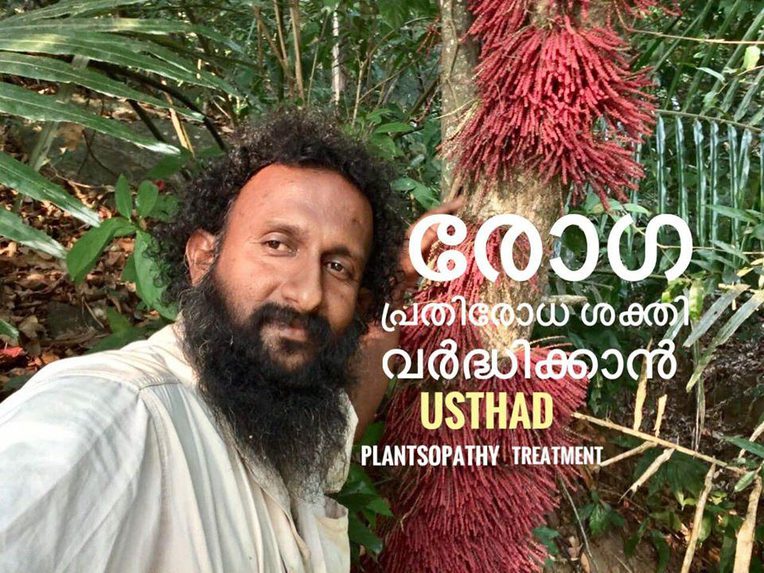Covid-19 in Kerala: Nature Cure, Social Media, and Subaltern Health Activism
From the Series: Responding to an Unfolding Pandemic: Asian Medicines and Covid-19
From the Series: Responding to an Unfolding Pandemic: Asian Medicines and Covid-19

In Kerala, South India, nature cure and herbal healers are also public health activists, offering strategies to strengthen immunities in a vulnerable age of airborne viral disease. While first popularized in India by M. K. Gandhi, nature cure or “natural living”—prakriti jeevanam in Malayalam—has developed a reputation in Kerala as a low-cost intervention for chronic health conditions.1 Going “viral” across social media, these qualified and nonqualified healers provide how-to classes on igniting the body’s vital self-healing capacities. In summer 2018, Kerala suffered an outbreak of Nipah virus, resulting in seventeen deaths and a looming atmosphere of uncertainty. In February 2020, Covid-19 arrived, opening up memories of previous emergencies: viruses, floods, and cyclones. While the Kerala government has sought support from AYUSH-certified Ayurvedic and Homeopathic practitioners to fight Covid-19, they have not engaged with subaltern healers: the non-elite, “folk” practitioners who lack the formal qualifications necessary to be state-recognized as legitimate.2 Excluded from being part of a “classic” or “textually defined” tradition, they increasingly face legal repercussions.
This article examines three subaltern prakriti jeevanam healers’ responses to Covid-19, in order to demonstrate how even though, from the perspective of statist knowledge, they are “understood in terms of what they are not—namely modern medicine,” they each craft different public identities (Hardiman and Mukharji 2012, 15). Their diverse stances regarding governmental epidemic authority show that the relationship between subaltern healers and state power is not fixed and oppositional, but diverse, fluid, and ethically engaged.

On January 30, 2020, Kerala became the first Indian state to diagnose a patient with Covid-19. In a February Facebook post—now removed—Mohanan Vaidyar (Figure 2) claimed to “cure all kinds of viral diseases.” Across his YouTube channels, including signintonature and welcometonature, Mohanan Vaidyar identifies as a nattuvaidyar (local healer) and a “food adulteration consultant.” In Malayalam, vaidyar refers to a hereditary medical expert; Mohanan Vaidyar has not confirmed any genealogical authority. In online and in-person classes, he charismatically uncovers the “poisonous” contents of popular “modern” commodities: Tang juice contains paint chips; store-bought Ayurvedic medicine is laced with pesticides; and premade masala powder causes illness. At the same time, he provides dietary and lifestyle advice for “naturally” solving conditions as mild as pimples and as chronic as cancer. On March 18, Kerala Police and Health Department Officials raided his Naturopathic-Ayurveda centre in Pattikad, arresting him for allegedly prescribing herbal medicines for COVID-19. For Mohanan Vaidyar and his colleague Dr. Jacob Vadakkanchery, being arrested is not uncommon. On March 25, 2020, newspapers announced that Mohanan Vaidyar had been likely infected with Covid-19 while in police custody.
Well before Mohanan Vaidyar’s arrest, Dr. Jacob Vadakkanchery (Figure 3) had already begun speculating on the “political etiology” of coronavirus. Rather than frame illness as inherently individual, this concept amplifies the ways that persons may extend disease origin and illness experience by implicating social and political failures (Hamdy 2008). Dr. Jacob, a Gandhian health activist and chairperson of seven Nature Life International hospitals in Kerala, is well-versed in discerning political etiologies. As he is not AYUSH-certified, Dr. Jacob hires BNYS (Bachelor of Naturopathy and Yogic Science) graduates to legally oversee these medical spaces. During monthly hospital visits, he educates patients on the connections between individual illnesses and collective changes, including polluted water, unsafe food, and corrupt pharmaceutical institutions. On January 29, Dr. Jacob posted a video to his YouTube channel, NATURE LIFE TV, entitled “Coronavirus: A Biological Weapon?” Here, Dr. Jacob unveils his ongoing theorization that Covid-19 is connected to an underpinning war between China, Iran, and the United States.

On March 23, 2020, the Chief Minister of Kerala, Pinarayi Vijayan, announced a statewide lockdown, extended to June 30 across all containment zones. In response, Dr. Jacob shifted away from generating governmental suspicion and initiated a hopeful, six-part video series, entitled “Corona: Immunity Tips.” The March 2020 cover of Nature Life International’s monthly magazine, Sujeevitham, also shows how Dr. Jacob oscillates between uncovering the virus’s global origins and celebrating the therapeutic value of local nature (Figure 1). On the left side of the cover, it reads, “From Nipah to Corona there is tragedy, medical dramas!”; and near the bottom-right, “In India, 52 lakhs medical mistakes.” Yet, under that, it hopefully reads: “Nature cure therapies for corona.” For Dr. Jacob, trusting in nature also means maintaining vigilance against global-state forces.
As a counterpoint to these controversies, Usthad Hamza Vaidyar (Figure 4) has emerged as the ecumenical alternative. On March 23, he posted a photo on Facebook of himself surrounded by lush plant life. In Malayalam, the photo reads: “Disease: To Improve Immunity Power, Usthad Plantsopathy Treatment.” Holding an honorary doctorate in “Plantsopathy” from Calicut University, Hamza Vaidyar runs the “Sasyabharathi Anti-Cancer Medicinal Plants and Food Research Centre” in Malappuram. Claiming to use 1,424 medicinal plant varieties, Hamza Vaidyar offers low-cost herbal remedies for chronic lifestyle illnesses, especially skin conditions.

On March 23, Hamza Vaidyar posted a video to his YouTube channel, Plantsopathy Treatment, entitled “How to increase disease immunity.” Gaining over 7,000 views in less than ten days, the video makes no reference to medical conspiracies. In Malayalam, the video begins with an invitation: “Welcome all to Plantsopathy. We are passing through the period of coronavirus in which the whole world is suffering. We must cooperate completely with the measures taken by the central government to fight coronavirus.” From there, he states: “If anyone, as a part of caste, religion, politics, beliefs, and ritual are standing against taking preventive measures, keep all those ideas aside. We have to cooperate with the central and state government.” Building off this stance, Hamza Vaidyar claims that, like “our ancestors,” we may use herbs to raise our immunity-power, including tulasi (holy basil), black pepper, and turmeric. He then details how to drink, powder, and ingest these products. Despite Kerala’s 60 percent reliance on pesticide-laden out-of-state vegetables and fruits, these local plants are widely accessible.
An April 6, 2020, New Indian Express article celebrates Kerala for “thinking beyond modern medicine” and employing alternative medicines to fight Covid-19. However, at the level of state-sponsored interventions, non-elite nature cure healers’ insights are rendered invisible. Despite these barriers, Hamza Vaidyar, Mohanan Vaidyar, and Dr. Jacob Vadakkanchery use social media as a public health platform, teaching Malayalis how to rebuild vulnerable immunities through eclectic, plant-based methods. Their responses to Covid-19 are plural and contested, demonstrating how subaltern health activism is a dynamic and ever-evolving practice.
1. While practitioners in Kerala may also refer to “nature cure” (prakriti chikitsa) and “natural life” (prakriti jeevitham), “natural living” (prakriti jeevanam) is the most common and all-encompassing term, at once referring to health practices, natural farming, and environmental advocacy.
2. AYUSH is a ministry of the Indian government that supports non-allopathic medical systems. This includes Ayurveda, Yoga and Naturopathy, Unani, Siddha, Homeopathy, and Sowa-Rigpa.
Hamdy, Sherine F. 2008. “When the State and Your Kidneys Fail: Political Etiologies in an Egyptian Dialysis Ward.” American Ethnologist 35, no. 4: 553–69.
Hardiman, David, and Projit Bihari Mukharji. 2012. Medical Marginality in South Asia: Situating Subaltern Therapeutics. London: Routledge.